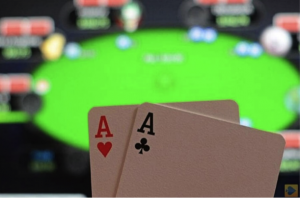Why people love to play in a casino?

What makes us gamble? It is not solely economic factors that determine a person’s desire and participation in gambling. There are mental and emotional processes that underlie the behavioral pyramid that leads to gambling behavior.
Why do people play in online casinos?
Players who prefer to play in a casino online do so mainly for four reasons: ease, anonymity, better returns, and a larger variety of games. On the other hand, players and non-players gave some reasons why they wouldn’t play online. These reasons are, lack of authenticity of the game, lack of realism, lack of sociability, use of electronic money, and suspicion about how secure websites are. While most online casinos have already resolved most of these issues, making them feel very close to the land-based casino experience.
However, according to research by Mark Griffits, the top two of the five deterrents often prove attractive to a portion of players who enjoy playing online. Griffits psychologically links the lack of realism and authenticity to the illusion that some players are looking for to escape reality. Anonymity is also inextricably linked to these players. They do not want to be marked with the stigma of a “gambler.” They do not want anyone to know how much money they are gambling or to see their facial reactions when they lose. The second—coverage of emotions—is also a significant motivation for online players.
In addition, Griffits continues in his research by saying that the online casino player’s psychology is directly related to the players who play in the betting exchanges because the illusion of control increases. Increased demand online has led to developments in all areas, such as software development, seo consultancy, increased player benefits, live camera situations, and generally improved product quality. Another element that makes the online casino attractive among the players in the holding of competitions between them. According to Harvard professor Howard Shaffer, tournaments pose significant risks of problematic gambling behavior, like aggression, competitiveness, and impulses are very strong, especially in the male population.
Competition: A huge trap
Competition on the internet through tournaments is quite exciting, but it hides a significant threat. Sociologist Erving Goffman describes our time as a stable one, which does not particularly favor competition. So, the player (mainly the male player) is looking for the innate competition that he possesses in online games.
In this context, even if he has lost a lot of money or spends much of his day playing online, he cannot stop because he is looking for constant competition, as a result of which he enters dangerous paths and edges closer to addiction. However, the best online casinos protect their players from that with limits on deposit, betting, etc., because they yearn for more healthy gaming.
What psychology says
To understand the paradox of gambling, scientists propose that players have a misconception in this particular field. The so-called mental theory suggests that they continue to gamble because of a misconception about the gambling process and not because they are poorly educated, have a complex social environment, or have personality problems. Although, these same people are rational outside of gambling, their logic evaporates when it comes to them. In fact, gamblers still use the same logical principles that govern daily life in a peculiar situation characterized by luck.
The human brain is built to find relationships between events and evaluate past experiences to understand the present and predict the future. But in situations ruled by luck, the brain’s ability loses its value since gambling is entirely unpredictable. Thus, looking to find relationships in gambling is not only inadequate but also destructive. “After 7 times, it has come out 7, it cannot, now it is the turn of 8,” says the player with this logic. Thus, by treating gambling according to the principle of cause and effect, players convince themselves that they can win the game by developing strategies that favor their winning chances. This causes faulty thinking.

